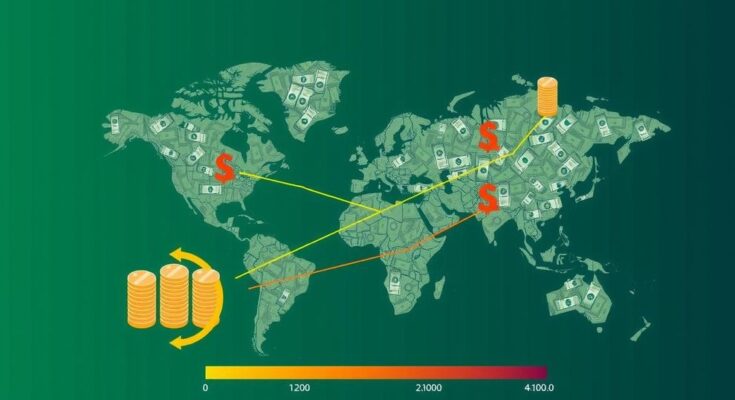At COP29 in Azerbaijan, developed nations were criticized for prioritizing military spending over climate action amid calls for increased investment in combating climate change. Significant military outlays were deemed unreasonable as the ecological impact of war grows. New research links climate change to the intensification of Atlantic hurricanes, highlighting an urgent need for collective action to protect the environment and mitigate disaster risks.
At the COP29 conference in Azerbaijan, developed nations faced severe criticism for prioritizing military expenditure over climate action. With global military spending reaching $2.5 trillion annually, Panamanian climate envoy Juan Carlos Monterrey Gómez remarked, “For some, 2.5 trillion dollars to kill each other, it’s not enough, but $1 trillion to save lives is unreasonable.” Furthermore, Palestinian environmental advocate Nisreen Tamimi condemned Israel for committing “ecocide” in Gaza, emphasizing the fundamental right to environmental protection for all humans.
Ukrainian Deputy Environment Minister Svitlana Grynchuk highlighted the ecological devastation resulting from military conflicts, stating, “Nature knows no borders.” In a related context, United Nations Secretary-General António Guterres urged the Group of 20 (G20) leaders to enhance financial commitments toward climate change, particularly to assist developing countries. Brazilian President Luiz Inácio Lula da Silva called for developed nations to set ambitious emission reduction goals earlier than 2050, given that the G20 accounts for 80 percent of global greenhouse gas emissions.
Moreover, new scientific research has demonstrated that climate change has intensified Atlantic hurricanes, making them significantly stronger. The study revealed that hurricanes have gained an average of 18 mph in wind speed over the past six years, leading many storms to escalate by an entire category. Daniel Gifford, a climate scientist, stated, “The intensity of these storms is causing a lot more catastrophic damage in general.” The data indicates that without human-induced climate change, there would have been no Category 5 storms recorded in 2024.
The discussions occurring at COP29 highlight the ongoing struggle between military spending and climate action. With wealthier nations allocated considerable resources towards military activities, critics argue that such priorities neglect the urgent needs of climate change mitigation. The statements made by delegates at the conference reflect a wider concern that military expenditures diminish the investments necessary for addressing global environmental challenges. Additionally, scientific findings concerning escalating hurricane intensity underscore the immediate effects of climate change, demanding swift action on international financial commitments to combat this crisis. The environmental degradation and disasters linked to military conflict, as articulated by various speakers at COP29, add another layer of urgency, especially in regions affected by warfare. The interplay between environmental issues and geopolitical conflicts raises critical questions about responsibility and the imperative for collective action towards sustainability and ecological preservation.
In conclusion, COP29 serves as a crucial platform emphasizing the need for developed nations to reallocate priorities by reducing military spending and increasing investments in climate resilience. High-profile global leaders and environmental advocates are uniting in their calls for immediate and significant action to combat climate change, linking ecological health to fundamental human rights. The findings from recent climate studies further illustrate the urgency, revealing a direct correlation between human actions and intensified natural disasters. Ultimately, the conference underscores the shared responsibility among global leaders to take substantive steps in addressing these pressing issues.
Original Source: www.peoplesworld.org




